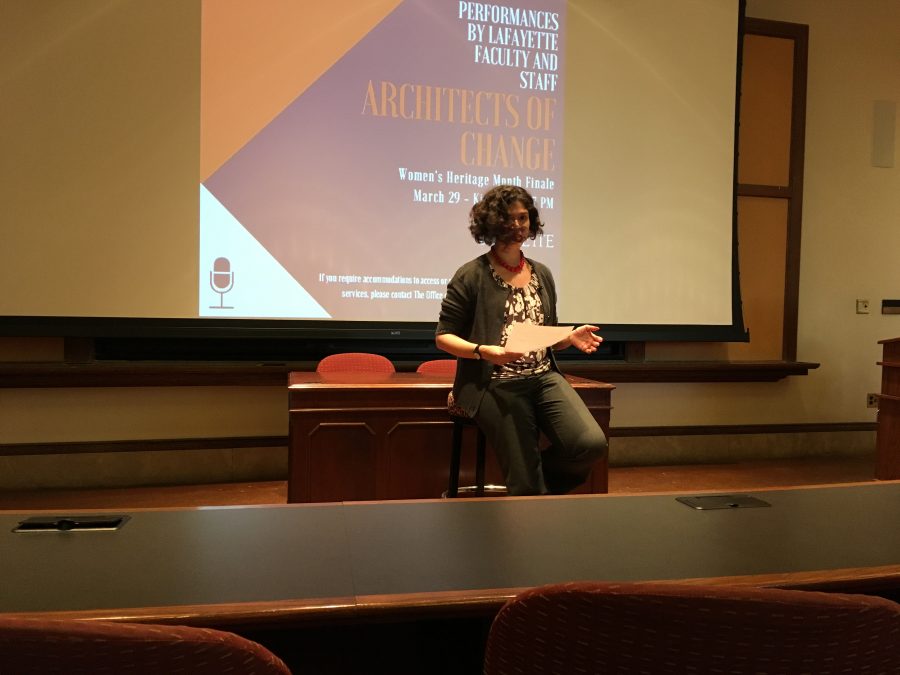For the finale of Women’s History Month, the Gender and Sexuality Programs held a spoken word event highlighting women having command over change.
The program, called “Celebrating Our Architects of Change,” had performers who read pieces on a variety of topics, including feminism, race and women working in STEM fields. Faculty and staff were asked to perform at the event on Wednesday in Kirby Hall of Civil Rights.
Eleven spoken word performances ranged from an analytical statement, original work, poems by other authors and short memoirs.
In her personal narrative “The Pursuit of Change,” Dean of Curriculum and Research and psychology professor Jamila Bookwala discussed an experience from a college class in the United States. As the first woman in her family to leave home, Bookwala admitted she sometimes wondered if she was getting ahead of herself coming to New York City.
“I am from change, shaped by my pursuit of change,” Bookwala said. “In my many roles, I have effected change. But I am also very much a daughter of change.”
In her piece, College Chaplain Alex Hendrickson spoke of her two grandmothers – the “cowgirl” grandmother and the “unlikeable” grandmother – and how in a time of grief, she has found herself relating to both.
Computer science professor Joann Ordille titled her piece “Memoirs of a Girl Geek” in which she described her experiences as a woman in the fields of mathematics and computer science.
“I was the lone woman in class,” Ordille said. “My professor was stunned when I got perfect scores, my classmates resented me when I broke the curve. They really didn’t talk with me except for the occasional date request, which I always considered suspect.”
Government and law professor Katalin Fabian offered a different perspective on feminism for the audience, in which she introduces the idea that today’s conception of “feminism” may not be how she identifies. Fabian described herself to the audience as a “paleo-feminist.”
English professor Megan Fernandes read two original poems, one about nostalgia and discussions about race.
William Gordon contributed reporting.





















































































































